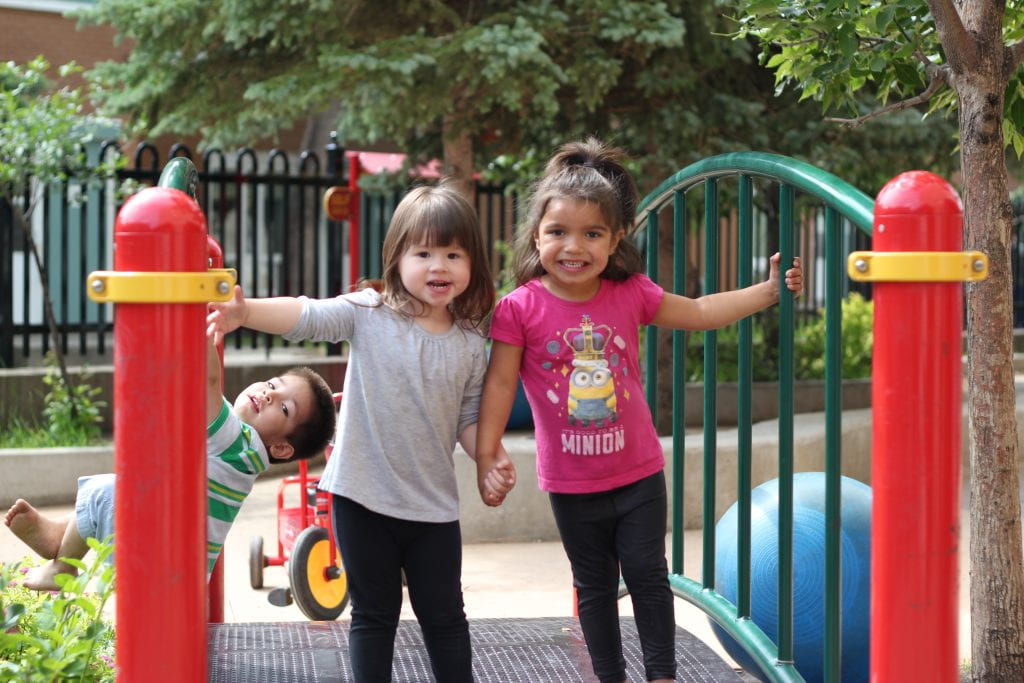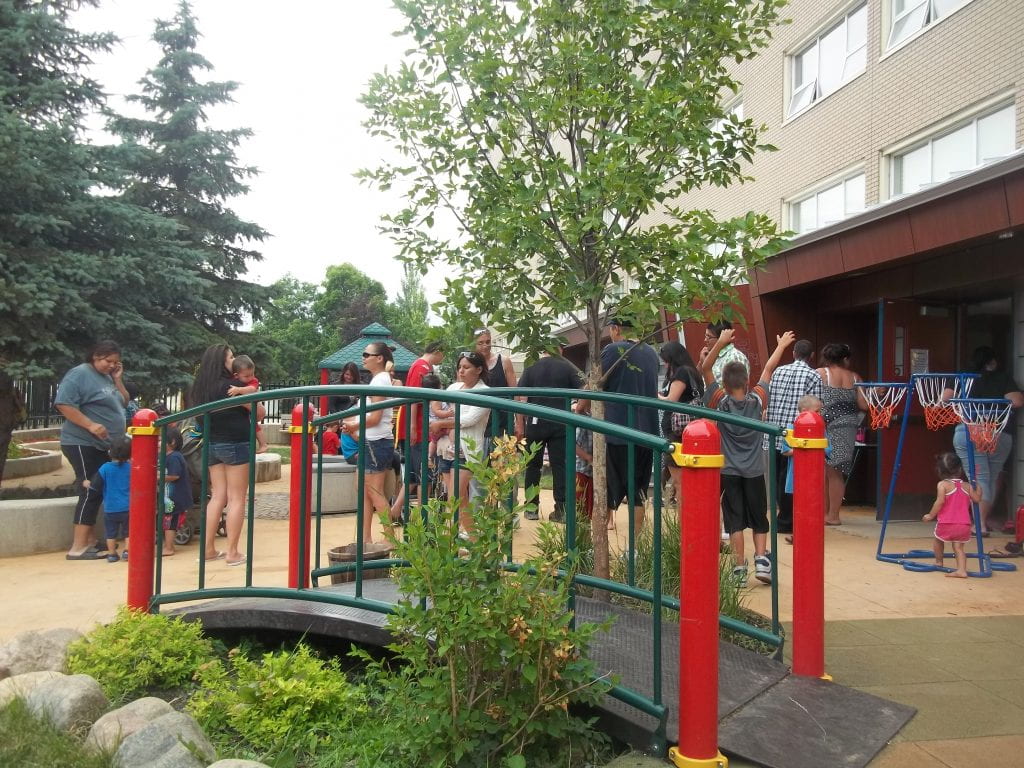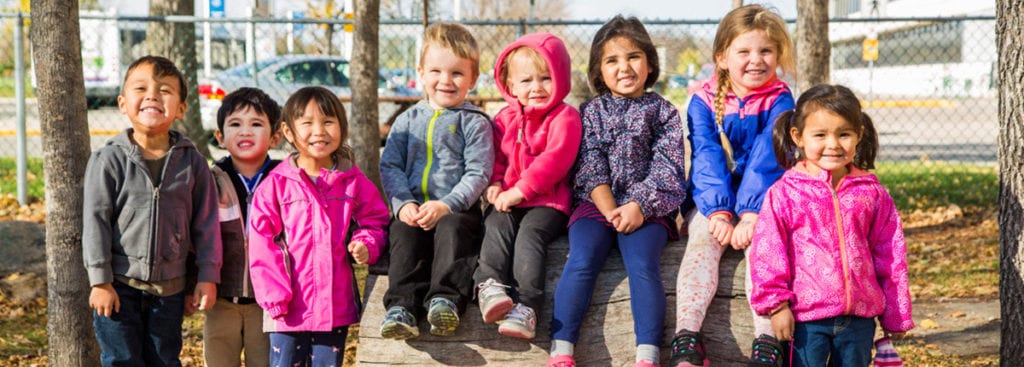Celebrating a Community of Change: new website supports vulnerable children and their caregivers
Today, Red River College (RRC) revealed a brand-new resource that highlights the potential for positive change that is released in a low-income community when their youngest citizens have access to intense early childhood services. Community of Change is a new website that demonstrates how changing vulnerable children’s early learning opportunities not only has a positive effect on them but creates a positive ripple effect on the adults around them.
The project is the result of a partnership between Red River College, Manidoo Gi-Miini Gonaan, and Healthy Child Manitoba. RRC received nearly $234,000 in funding from the Social Sciences and Humanities Research Council of Canada (SSHRC) in 2016 to support new research examining how an early childhood intervention program influenced the parents and staff at the Lord Selkirk Park Child Care Centre.
“The funding we received from SSHRC allowed Red River College to bolster our leadership role in social innovation research and knowledge mobilization,” said Christine Watson, VP Academic, Red River College. “Projects like these highlight our ongoing and innovative work in the areas of health and social sciences – work we couldn’t do without the support of our partners and community.”
To celebrate the launch of Community of Change and to thank the families and staff who participated in the research project, RRC and its partners hosted a launch event at Turtle Island Neighbourhood Centre.
“It’s important for us to celebrate this work with those who helped shape it. The families who agreed to tell their stories are really at the core of this research project,” said Jan Sanderson, Research Chairperson for the Research School of Health Sciences at RRC.
“Many studies have demonstrated that young children living in economically challenged circumstances face an uphill battle to meet their developmental milestones and enter kindergarten ready for the education challenges ahead,” continued Sanderson. “Fortunately, research also tells us that we can change that trajectory by intervening early and providing services that support both young children and their parents. The project at Lord Selkirk Park is demonstrating exactly that. We have seen the ripple effect boost a child’s potential, and suddenly the parent is also engaged, motivated and inspired to explore their own developmental path. Kids benefit, families benefit, and the community grows stronger and healthier.”
To learn more about the project findings, visit communityofchange.org.





 The first-ever 16-week
The first-ever 16-week  The need for innovation is everywhere. Every day we experience old systems, aging technology and traditional ways of thinking that hold us back from improving. There has to be a better way.
The need for innovation is everywhere. Every day we experience old systems, aging technology and traditional ways of thinking that hold us back from improving. There has to be a better way.